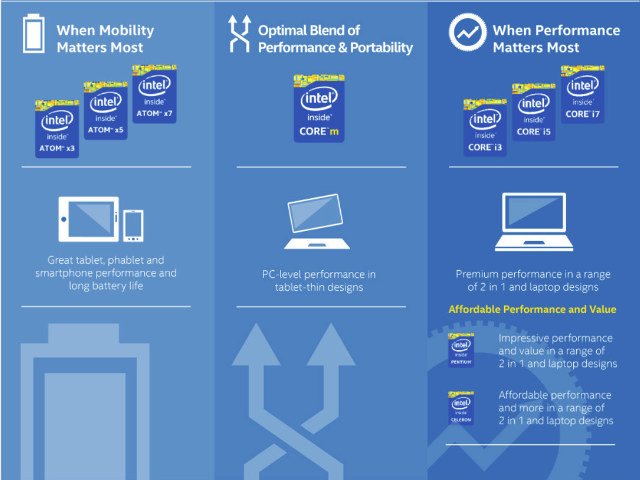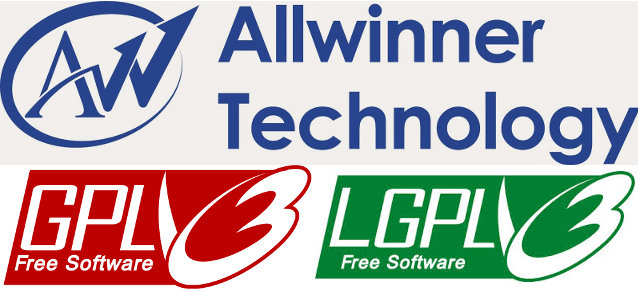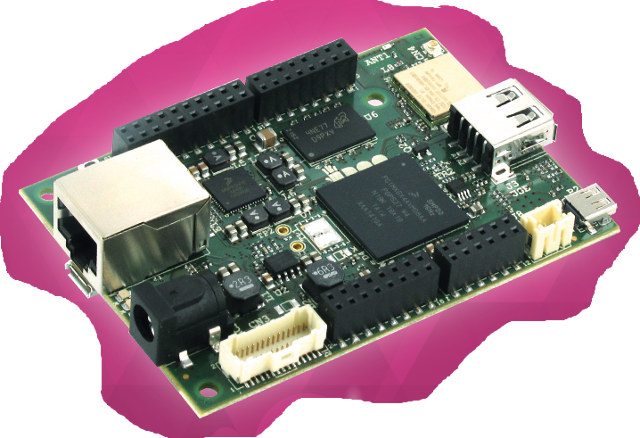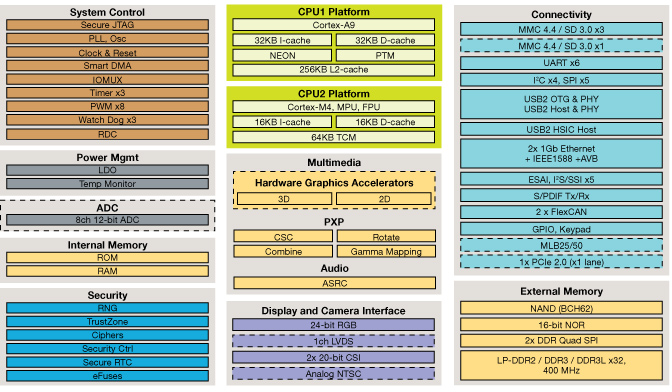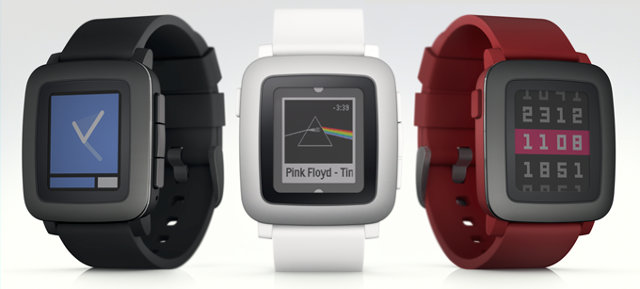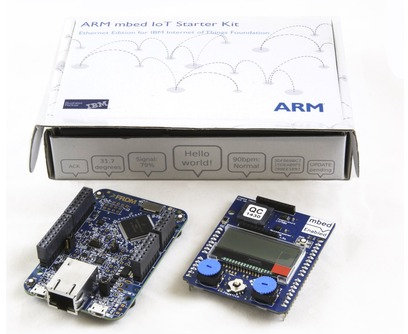Console OS is an operating system based on Android that’s designed to run on x86 machines side-by-side with Windows and with desktop-friendly user interface. The project has been funded via a Kickstarter campaign, so backers get the updates earlier, but the developers have now publicly released Console OS DR1 (Developer Release 1) based on Android 4.4.2 so that more people can download it and try it for free after registration. I wanted to try it on Mele PCG03, but it failed, even after copying bootia32.efi to /EFI/BOOT directory (I get stuck into Grub command line), and I found out that “Systems must have 64-bit UEFI firmware. Some systems have 32-bit UEFI firmware, and we are working on adding support for those provided you have one of the processors above”. So it won’t work on cheap Windows 8.1 dongles and mini PC like MeegoPad T01 or Pipo X7, but MINIX NEO […]
Intel Introduces Atom x3, x5 and x7 Categories for Its Upcoming Low Power Processors
Intel has been using Core i3, i5, and i7 models for its desktop processor for a few years in order to help consumers chose between entry-level, mid-range, and high-performance processor, although you may also want to look at the launch date as some Core i7 launched in 2010 may be quite slower than Core i3 launched in 2013 or 2014 for example. Intel has now decided to use a similar naming scheme for its next generation Atom processor used in tablets, phablets, and smartphones with Atom x3, Atom x5, and Atom x7 product ranges instead of the often confusing names like Z3735F, Z3580, etc.. The company will still offer slightly more powerful Pentium and Celeron processor for 2-in-1 laptop designs and mini PCs, as well as new Core-M processors for low power and PC-like performance think laptops or tablets. Via Liliputing and UMPCPortal Jean-Luc Aufranc (CNXSoft)Jean-Luc started CNX Software in […]
Allwinner’s New Media Codec Library (CedarX) May Infringe on Open Source Licenses and Copyrights
Allwinner has had to good idea to open allwinner-zh github account last September in order to release source code, binary libraries, and documentation for these ARM processors. Yesterday, the company released a new version of their closed source CedarX library used to decode and encode video streams. But Luc Verhaegen (libv), known for his reverse-engineering work on ARM Mali-400 (lima driver) and now Mali-Txxx GPU (Tamil driver), analyzed the binary and claimed the library is not compliant with LGPL licenses, and may also infringe on On2 copyrights. Luc wrote his concerns on sunxi-linux mailing list, and Allwinner promised to look into it. Two libraries are involved: ffmpeg which includes both LGPL and GPL licenses, but the contention seems to be about the LGPL part, since only optional features are GPL’ed in ffmpeg. It’s perfectly fine to include LGPL libraries into your binaries, as long as you don’t modify the open source […]
GroBotz Interactive Robot Project is Made of Easy to Assemble Smart Blocks (Crowdfunding)
GroBotz makes me think of Lego applied to robotics. The project consists of modules such as motors, sensors, buttons, switches, or cameras that snap together in order to create a robot on wheels, games, toys, a musical instrument, or whatever idea you may have, and the hardware is then programmed using a graphical user interface. A Raspberry Pi board is used for the brain of the robot, and Microchip PIC MCUs for the smart blocks. The software is programmed in C# using Xamarin, the user interface is based on Unity, OpenCV is used for image processing, and during development a plastic part where printed with Makerbot, and schematics and PCB layout designed with CadSoft EAGLE. The company has now come up with a number of modules as shown in the picture below. Your robot can then be controlled over Wi-Fi with GroBotz app which works on Windows, Mac OS, iOs, […]
UDOO Neo Development Board is Powered by Freescale i.MX 6SoloX Processor
UDOO boards combine a Freescale i.MX6 dual or quad core processor with an external Atmel SAM3X MCU that’s programmable as an Arduino board, so as Freescale has now formally announced their i.MX 6SoloX processor with a Cortex A9 core running Linux and Android, and a Cortex M4 core running MQX real-time operating systems, it was logical that the company would soon launch a low cost development board based on this heterogeneous processor. Meet UDOO Neo. UDOO Neo board specifications: SoC – Freescale i.MX 6SoloX ARM Cortex-A9 core @ 1GHz and ARM Cortex-M4 Core with 2D/3D GPU System Memory – 512MB or 1GB DDR3 (only Plus version) Storage – On-board NOR SPI Flash, micro SD slot, 8-bit SDIO interface (on headers) Video Input/Output micro HDMI port LVDS interface + touch (I2C signals) Analog camera connection supporting NTSC and PAL 8-bit Parallel camera interface (on headers) Audio – HDMI USB – 1x […]
Freescale Announces i.MX 6SoloX ARM Cortex A9 & Cortex M4 Processor
Freescale i.MX6 SoloX processor started to show up in the ARM Linux Kernel mailing list last year, and Cortex A9 + Cortex M4 processor showed up in some marketing documents, but so far all documentation was tied to a non-diclosure agreement. However, all resources are now publicly available, as the company officially launched i.MX 6SoloX processor at Embedded World 2015. Freescale i.MX 6SoloX specifications: CPU – ARM Cortex-A9 up to 1 GHz with 512 KB L2 cache, 32 KB instruction and data caches and NEON SIMD media accelerator MCU – ARM Cortex-M4 up to 200 MHz with 16 KB instruction and data caches, 64 KB TCM, MPU and FPU Memory Interface 16/32-bit DDR3-800 and DDR3L-800, 16/32-bit LPDDR2-800 SLC/MLC NAND, 62-bit ECC, ONFI2.2 2x DDR Quad SPI NOR flash, 16/32-bit NOR Flash Display and Camera Interfaces Parallel RGB LVDS 20-bit parallel CMOS sensor interface NTSC/PAL analog video input interface Multimedia GPU […]
Pebble Time is the Color Version of the Pebble SmartWatch (Crowdfunding)
The original Pebble Watch launched on Kickstarter about 3 years ago, and after selling over 1 million watches, the company is back on Kickstarter with Pebble Time, a thinner version of the watch with an always-on color e-Paper display, a new “timeline” user interface, a microphone for voice recognition, and 7 days of battery life. The complete Pebble Time specifications are not available, but the company still listed some key features: MCU – Cortex M4 Always-on, daylight readable 64 colors e-Paper display with backlight (no touchscreen) Six-axis gyrosope Microphone for dictation 3x tactile buttons Bluetooth for connectivity with mobile devices Up to 7 day battery life Compatible with any standard 22mm watch band Water resistant and durable Silent vibrating alarms Language and international character support (Chinese coming soon) The new Timeline interface focuses on past, present and future events such as basketball score, current steps, and weather forecast, and the […]
Freescale Kinetis based Mbed IoT Starter Kit Ethernet Edition Connects to IBM IoT Cloud
ARM, IBM and Freescale have jointly announced Mbed IoT Start Kit – Ethernet Edition at Embedded World 2015 that consists of a Freescale Kinetis Cortex M4 mbed-enabled development board and a sensor IO application shield that interface with IBM Bluemix cloud platform. Freescale FRDM-K64F Freedom development board specifications: MCU – Freescale Kinetis K64 (MK64FN1M0VLL12) ARM Cortex M4 MCU @ 120 MHz with 1 MB flash memory, 256 KB RAM External Storage – SDHC slot Connectivity – 10/100M Ethernet USB – Dual role USB interface with micro-B USB connector Sensors – FXOS8700CQ accelerometer and magnetometer Headers – Arduino R3 compatible I/O connectors Misc – RGB LED, two user push buttons Power Supply – OpenSDAv2 USB, Kinetis K64 USB, and external source The board also features a programmable OpenSDAv2 debug circuit supporting the CMSIS-DAP Interface software that provides a mass storage device (MSD) flash programming interface, or a CMSIS-DAP debug interface, or […]



